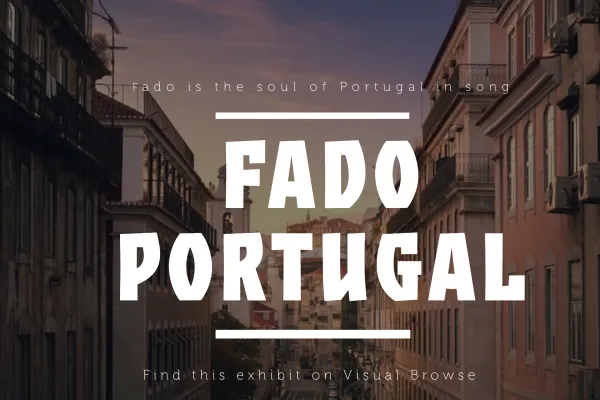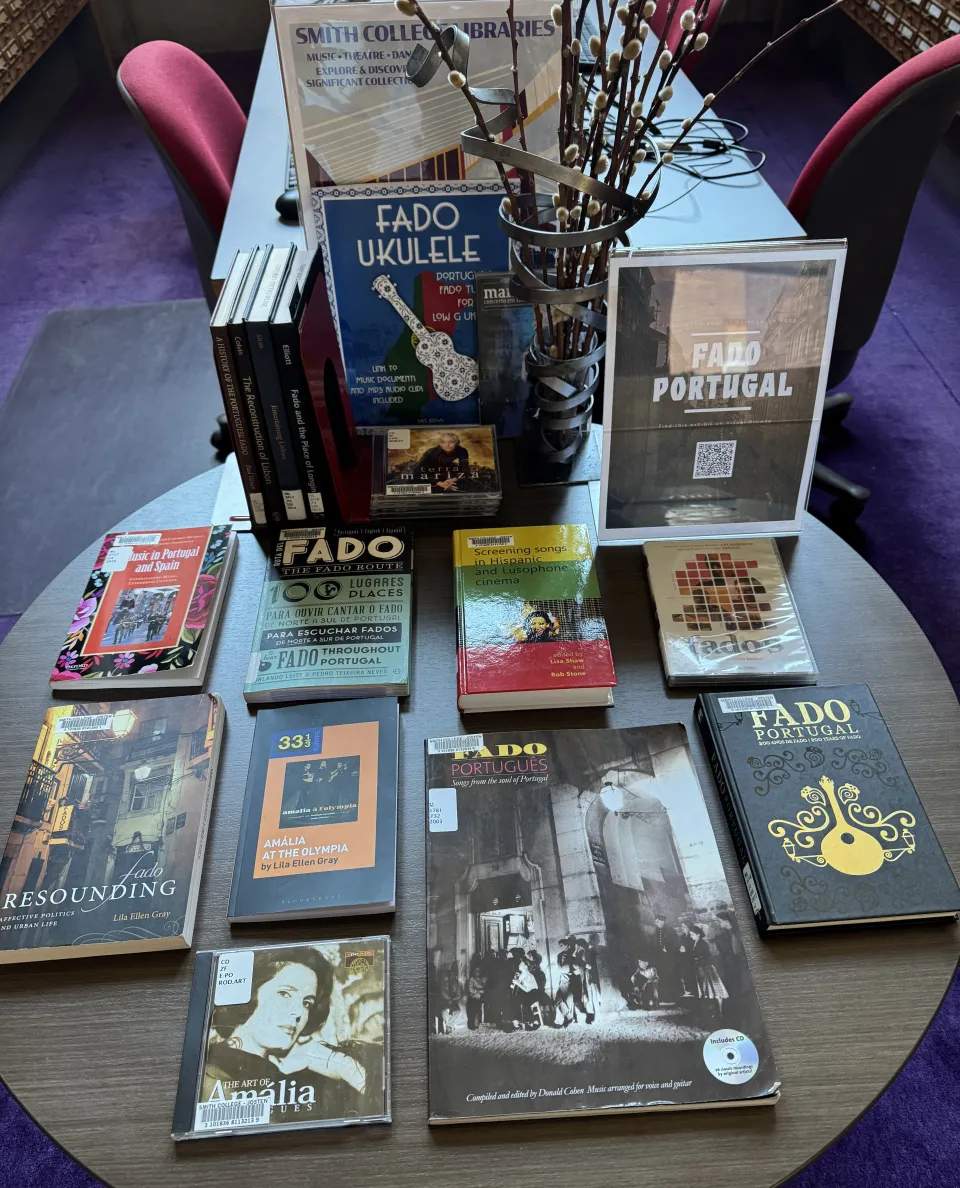The Portuguese Fado on Exhibit in Josten Library
Exhibits
On view spring semester 2025.

Published January 27, 2025
Fado is the soul of Portugal in song. This exhibit is a selection of books, scores, CDs and DVDs related to Fado on exhibit in the Josten Performing Arts Library through March 2025.
The selections (with cover images) are also listed virtually on Visual Browse: Fado Portugal - The Portuguese Fado.
Reception for the Exhibit: With Support from Spanish & Portuguese and Music Departments, and the Smith College Libraries
Friday, February 28, 2025
4 - 5:30 p.m. (before the start of Ramadan)
Josten Library Mezzanine
On View in Josten Library

What is Fado?
Fado is a genre of Portuguese singing that originated in Portugal in the earlier 1800s, and has come to be associated with fado houses (and schools), pubs, cafés, restaurants, as well as the concert circuit.
Performed by both amateurs and professionals, it usually consists of a solo singer (male or female) traditionally accompanied by a wire-strung acoustic guitar and the Portuguese guitarra – a pear-shaped cittern with twelve wire strings, unique to Portugal. The fadista (singer of fado) will sing about the hard realities of daily life (described by using the Portuguese word saudade, which means “longing” and stands for a feeling of loss). Fado is known for its expressivity and melancholy.
The significance of Fado's music and poetry is such that it was marked for inclusion in the UNESCO Intangible Cultural Heritage List in 2011. The singer, Amália Rodrigues (1920 - 1999,) was instrumental in helping to popularize Fado worldwide.
Contact
mmwong@smith.edu
Head of Werner Josten Performing Arts Library